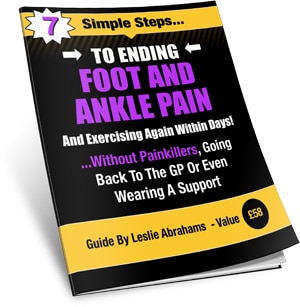Are you resilient enough to see out your winter training exercise program?
By Mike Davis, Physiotherapist
Winter is the time of the year when we are building up our training for a forthcoming marathon, Tough Mudder, or even a triathlon. It’s also often the time of the year when we feel least like training if you are like me! None-the-less, there is work to be done, so here are our top tips for remaining resilient during the dark and gloomy months.
- Debug the system.
Each time you are in the environment of other human beings you will also be joining their bacterial and viral environment. Nice. Maybe you have recently found that just about everyone in the office has a cough or cold?
How come some lucky folk seem as though they’re coated in bug teflon? Maybe they’ve discovered the miracle of hand gel. Every time you touch a tube hand rail, a lift button or stroke your fingers across one of those expensive Mac books in the apple store, you need to be applying this.
If you’ve shaken paws with a work colleague or another athlete, it’s time to get hand scrubbing! The reality is that we don’t breath in bugs, as much as we literally pick them up by touch. It’s time to debug and make yourself sniffle bomb-proof.
- Sleep.
How often do you really get sufficient sleep? If you’re finding that you are having to lay in at the weekend way beyond your normal work day get up alarm time, chances are you’re big-time sleep deprived.
Here’s a sad fact. If you get less than six hours per night, you’re likely to die prematurely. If that’s not a good enough reason to get to bed early, then remember that every extra hour kipping means better sporting performance.
- Eat.
We are all used to the concept of refuelling in a timely manner. This means getting some carbs and protein on-board within 20 minutes of finishing a hard training session. Vitamin D is something we should all think about improving upon, especially in the absence of sufficient winter light.
So, what else could do with optimising? How about iron? Ferritin, as it’s known in the medical world, is not only an important component in red blood cells, but also has a direct effect on mitochondrial enzymes, our thyroid, neuro, and immune function. Many of us are deficient in it.
The NHS level for ‘adequate’ ferritin is probably inadequate for active sports men and women. We’d like your levels to be nearer 100 units than 20. Red meat, dark leafy greens, beans and dried apricots are a great source. Adding in vitamin C foods will help you on-board iron even quicker. If you are not sure what your ferritin level is, maybe it’s time to get it checked?
- Are you road running in the dark?
Make sure the traffic can see you by wearing reflective clothing and think about wearing a head light – great for showing up any dodgy potholes or kerbs to avoid those nasty ankle sprains.
Also try and avoid badly lit areas or roads with no pavements which might mean you do the same loop a few repeated times ….yep it can get a bit boring but better option than the risk of injuring yourself!
If possible try and run with friends or in a running club and if you are on your own try and plan your route so that you are running in areas with plenty of other people – and don’t wear headphones!!
Always try and run with your phone in case you do get injured and also make sure you tell someone where you are going and you can use apps such as strava to map your run so someone at home can see your location.
- Be Merry!
It’s easy in these winter months to get a bit of a downer on yourself. Training schedules can be arduous. We tend to beat ourselves up if it’s not going so well, and we aren’t seeing progression every time we go out. Give yourself a break! Remind yourself this is also about having fun as well as getting fit.
Reward yourself for those milestones that you set, and don’t forget to relax. For those of us ‘Type A’ folk who find the idea of relaxing a little stressful, try to introduce periods of your day when you are actively being mindful.
Winter training may be tough but pull on your emotional and physical armour so you can power through to spring. It’s around the corner.
Here are the golden kit rules for training in the winter…as you lay the foundations and begin your journey towards those spring /summer race goals!
CORRECT KIT CREATES CONFIDENCE
Many may try to ‘make do’ when it’s chucking down, slippery or blowing a gale force wind outside but I really would suggest investing in some quality winter running kit and let’s be honest, running on the whole, is inexpensive in comparison to other sports.
SUITABLE KIT
Base layers, long tights, a visible lightweight running jacket , running specific gloves, hats and headbands are a must have. Be safe, seen and warm this winter. High vis clothing is an essential and feeling confident that you can be seen makes the run safer and more enjoyable.
TRAIL SHOES
Cope with the wet, muddy or frosty conditions underfoot by investing in a trail shoe. A better grip and support will continue to make your usual parks and trail routes achievable and a pleasure rather than having to stick to the road.
COMPRESSION
It’s time to also think about performance and recovery. I would recommend using compression calf sleeves (2XU have great options) and even full length tights to help keep the legs warm. Good fitting compression clothing will boost blood flow to key muscle groups when running, helping you to run faster for longer. Crucially, compression will also speed up your recovery with increased blood flow and nutrients to tired muscles.
TOP TIP
As soon as you finish your run in the winter, remove the base layers and/or sports bra. Put on warm dry clothing and keep warm. Combine this with eating & drinking some recovery product to ensure you are looking after that immune system, which can be lowered when cold and hungry.
LAYER UP…
Layer up sensibly with a quality wicking base layer and then allow the first 10 minute warm up section of your run to do its job. Ideally you will be warming your core temperature making the run tolerable and comfortable… if you keep moving!
Above all else, look forward to some of the inspirational moments the winter can bring. Running through the leaves in the park or cutting through the frost on the ground, seeing your own breath, the first footprints in the snow, splashing through the puddles and that warm glow as you return to the indoors knowing you are a real runner who runs come rain or shine! And remember, your spring race performance is built in the winter…







